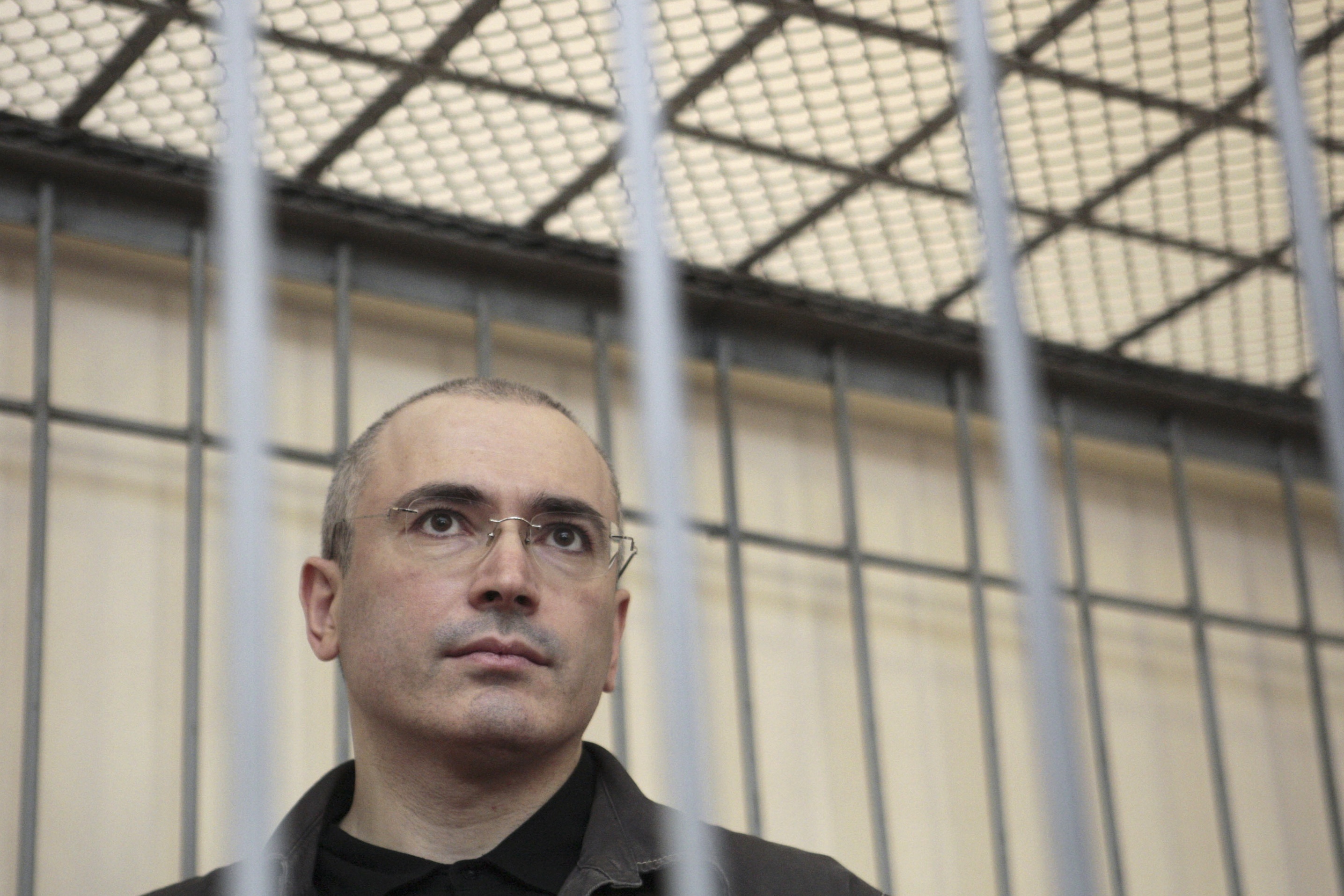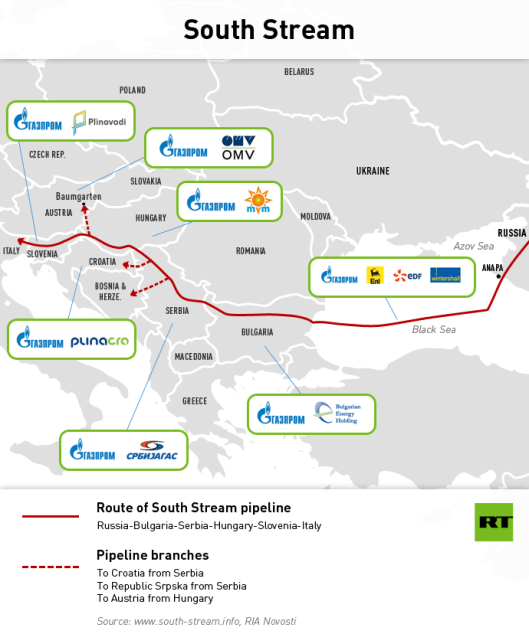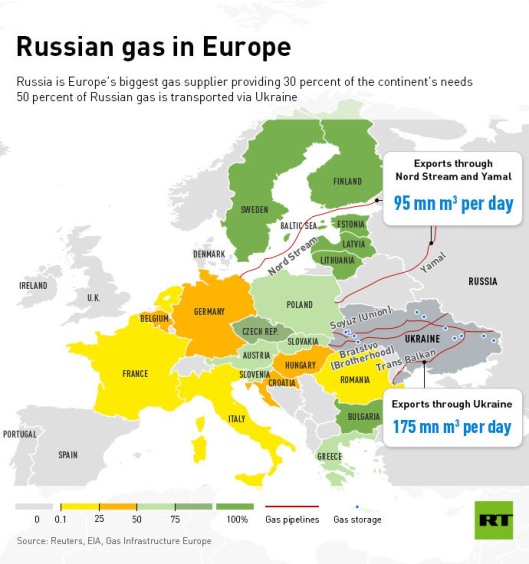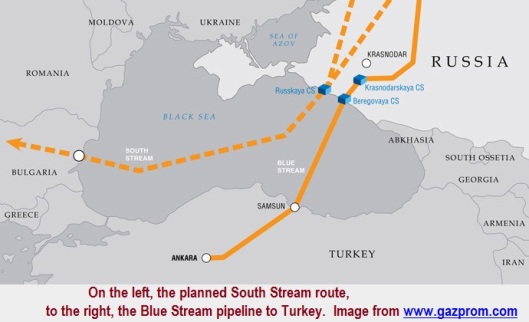The reaction to the cancellation of the Sound Stream project has been a wonder to behold and needs to be explained very carefully.
In order to understand what has happened it is first necessary to go back to the way Russian-European relations were developing in the 1990s.
Briefly, at that period, the assumption was that Russia would become the great supplier of energy and raw materials to Europe. This was the period of Europe’s great “rush for gas” as the Europeans looked forward to unlimited and unending Russian supplies of gas. It was the increase in the role of Russian gas in the European energy mix which made it possible for Europe to run down its coal industry and cut its carbon emissions and bully and lecture everyone else to do the same.
However the Europeans did not envisage that Russia would just supply them with energy. Rather they always supposed this energy would be extracted for them in Russia by Western energy companies. This after all is the pattern in most of the developing world. The EU calls this “energy security” – a euphemism for the extraction of energy in other countries by its own companies under its own control.

It never happened that way. Though the Russian oil industry was privatised it mostly remained in Russian hands.
After Putin came to power in 2000 the trend towards privatization in the oil industry was reversed. One of the major reasons for western anger at the arrest of Khodorkovsky and the closure of Yukos and the transfer of its assets to the state oil company Rosneft was precisely because it reversed this trend of privatization in the oil industry.
In the gas industry the process of privatisation never really got started. Gas export continued to be controlled by Gazprom, maintaining its position as a state owned monopoly gas exporter. Since Putin came to power Gazprom’s position as a state owned Russian monopoly has been made fully secure.
Much of the anger that exists in the west towards Putin can be explained by European and western resentment at his refusal and that of the Russian government to the break up of Russia’s energy monopolies and to the “opening up” (as it is euphemistically called) of the Russian energy industry to the advantage of western companies. Many of the allegations of corruption that are routinely made against Putin personally are intended to insinuate that he opposes the “opening up” of the Russian energy industry and the break up and privatisation of Gazprom and Rosneft because he has a personal stake in them (in the case of Gazprom, that he is actually its owner). If one examines in detail the specific allegations of corruption made against Putin (as I have done) this quickly becomes obvious.
This agenda of forcing Russia to privatise and break up its energy monopolies has never gone away. This is why Gazprom, despite the vital and reliable service it provides to its European customers, comes in for so much criticism. When Europeans complain about Europe’s energy dependence upon Russia, they express their resentment at having to buy gas from a single Russian state owned company (Gazprom) as opposed to their own western companies operating in Russia.
This resentment exists simultaneously with a belief, very entrenched in Europe, that Russia is somehow dependent upon Europe as a customer for its gas and as a supplier of finance and technology.
This combination of resentment and overconfidence is what lies behind the repeated European attempts to legislate in Europe on energy questions in a way that is intended to force Russia to “open up” its the energy industry there.
The first attempt was the so-called Energy Charter, which Russia signed but ultimately refused to ratify. The latest attempt is the EU’s so-called Third Energy Package.
This is presented as a development of EU anti-competition and anti-monopoly laws. In reality, as everyone knows, it is targeted at Gazprom, which is a monopoly, though obviously not a European one.
This is the background to the conflict over South Stream. The EU authorities have insisted that South Stream must comply with the Third Energy Package even though the Third Energy Package came into existence only after the outline agreements for South Stream had been already reached.
Compliance with the Third Energy Package would have meant that though Gazprom supplied the gas it could not own or control the pipeline through which gas was supplied.
Were Gazprom to agree to this, it would acknowledge the EU’s authority over its operations. It would in that case undoubtedly face down the line more demands for more changes to its operating methods. Ultimately this would lead to demands for changes in the structure of the energy industry in Russia itself.
What has just happened is that the Russians have said no. Rather than proceed with the project by submitting to European demands, which is what the Europeans expected, the Russians have to everyone’s astonishment instead pulled out of the whole project.
This decision was completely unexpected. As I write this, the air is of full of angry complaints from south-eastern Europe that they were not consulted or informed of this decision in advance. Several politicians in south-eastern Europe (Bulgaria especially) are desperately clinging to the idea that the Russian announcement is a bluff (it isn’t) and that the project can still be saved. Since the Europeans cling to the belief that the Russians have no alternative to them as a customer, they were unable to anticipate and cannot now explain this decision.
Here it is important to explain why South Stream is important to the countries of south-eastern Europe and to the European economy as a whole.
All the south eastern European economies are in bad shape. For these countries South Stream was a vital investment and infrastructure project, securing their energy future. Moreover the transit fees that it promised would have been a major foreign currency earner.
For the EU, the essential point is that it depends on Russian gas. There has been a vast amount of talk in Europe about seeking alternative supplies. Progress in that direction had been to put it mildly small. Quite simply alternative supplies do not exist in anything like the quantity needed to replace the gas Europe gets from Russia.
There has been some brave talk of supplies of US liquefied natural gas replacing gas supplied by pipeline from Russia. Not only is such US gas inherently more expensive than Russian pipeline gas, hitting European consumers hard and hurting European competitiveness. It is unlikely to be available in anything like the necessary quantity. Quite apart from the probable dampening effects of the recent oil price fall on the US shale industry, on past record the US as a voracious consumer of energy will consume most or all of the energy from shales it produces. It is unlikely to be in a position to export much to Europe. The facilities to do this anyway do not exist, and are unlikely to exist for some time if ever.
Other possible sources of gas are problematic to say the least. Production of North Sea gas is falling. Imports of gas from north Africa and the Persian Gulf are unlikely to be available in anything like the necessary quantity. Gas from Iran is not available for political reasons. Whilst that might eventually change, the probability is when it does that the Iranians (like the Russians) will decide to direct their energy flow eastwards, towards India and China, rather than to Europe.
For obvious reasons of geography Russia is the logical and most economic source of Europe’s gas. All alternatives come with economic and political costs that make them in the end unattractive.
The EU’s difficulties in finding alternative sources of gas were cruelly exposed by the debacle of the so-called Nabucco pipeline project to bring Europe gas from the Caucasus and Central Asia. Though talked about for years in the end it never got off the ground because it never made economic sense.
Meanwhile, whilst Europe talks about diversifying its supplies, it is Russia which is actually cutting the deals.
Russia has sealed a key deal with Iran to swap Iranian oil for Russian industrial goods. Russia has also agreed to invest heavily in the Iranian nuclear industry. If and when sanctions on Iran are lifted the Europeans will find the Russians already there. Russia has just agreed a massive deal to supply gas to Turkey (about which more below). Overshadowing these deals are the two huge deals Russia has made this year to supply gas to China.
Russia’s energy resources are enormous but they are not infinite. The second deal done with China and the deal just done with Turkey redirect to these two countries gas that had previously been earmarked for Europe. The gas volumes involved in the Turkish deal almost exactly match those previously intended for South Stream. The Turkish deal replaces South Stream.
These deals show that Russia had made a strategic decision this year to redirect its energy flow away from Europe. Though it will take time for the full effect to become clear, the consequences of for Europe are grim. Europe is looking at a serious energy shortfall, which it will only be able to make up by buying energy at a much higher price.
These Russian deals with China and Turkey have been criticised and even ridiculed for providing Russia with a lower price for its gas than that paid by Europe.
The actual difference in price is not as great as some allege. Such criticism anyway overlooks the fact that price is only one part in a business relationship.
By redirecting gas to China, Russia cements economic links with the country that it now considers its key strategic ally and which has (or which soon will have) the world’s biggest and fastest growing economy. By redirecting gas to Turkey, Russia consolidates a burgeoning relationship with Turkey of which it is now the biggest trading partner.
Turkey is a key potential ally for Russia, consolidating Russia’s position in the Caucasus and the Black Sea. It is also a country of 76 million people with a $1.5 trillion rapidly growing economy, which over the last two decades has become increasingly alienated and distanced from the EU and the West.
By contrast, by redirecting gas away from Europe, Russia leaves behind a market for its gas which is economically stagnant and which (as the events of this year have shown) is irremediably hostile. No one should be surprised that Russia has given up on a relationship from which it gets from its erstwhile partner an endless stream of threats and abuse, combined with moralising lectures, political meddling and now sanctions. No relationship, business or otherwise, can work that way and the one between Russia and Europe is no exception.
I have said nothing about Ukraine since in my opinion this has little bearing on this issue.
South Stream was first conceived because of Ukraine’s continuous abuse of its position as a transit state – something which is likely to continue. It is important to say that this fact was acknowledged in Europe as much as in Russia. It was because Ukraine perennially abuses its position as a transit state that the South Stream project had the grudging formal endorsement of the EU. Basically, the EU needs to circumvent the Ukraine to secure its energy supplies every bit as much as Russia wanted a route around Ukraine to avoid it.
Ukraine’s friends in Washington and Brussels have never been happy about this, and have constantly lobbied against South Stream. The point is however that it was Russia which pulled the plug on South Stream when it had the option of going ahead with it by accepting the Europeans’ conditions. In other words the Russians consider the problems posed by the Ukraine as a transit state to be a lesser evil than the conditions the EU was attaching to South Stream .
South Stream would anyway take years to build and its cancellation therefore has no bearing on the current Ukrainian crisis.
The reason the Russians decided they could cancel it is because they have decided Russia’s future is in selling its energy to China and Turkey and other states in Asia (more gas deals are pending with Korea and Japan and possibly also with Pakistan and India) than to Europe. Given that this is so, for Russia South Stream has lost its point. That is why in their characteristically direct way, rather than accept the Europeans’ conditions, the Russians pulled the plug on it.
In doing so the Russians have called the Europeans’ bluff. So far from Russia being dependent on Europe as its energy customer, it is Europe which has antagonised, probably irreparably, its key economic partner and energy supplier.
Before finishing I would however first say something about those who have come out worst of all from this affair. These are the corrupt and incompetent gaggle of politicians who pretend to be the government of Bulgaria. Had these people had a modicum of dignity and self respect they would have told the EU Commission when it brought up the Third Energy Package to take a running jump. If Bulgaria had made clear its intention to press ahead with the South Stream project, there is no doubt it would have been built. There would of course have been an almighty row within the EU as Bulgaria openly flouted the Third Energy Package, but Bulgaria would have been acting in its national interests and would have had within the EU no shortage of friends. In the end it would have won through.
Instead, under pressure from individuals like Senator John McCain, the Bulgarian leadership behaved like the provincial politicians they are, and tried to run at the same time with both the EU hare and the Russian hounds. The result of this imbecile policy is to offend Russia, Bulgaria’s historic ally, whilst ensuring that the Russian gas which might have flown to Bulgaria and transformed the country, will instead flow to Turkey, Bulgaria’s historic enemy.
The Bulgarians are not the only ones to have acted in this craven fashion. All the EU countries, even those with historic ties to Russia, have supported the EU’s various sanctions packages against Russia notwithstanding the doubts they have expressed about the policy. Last year Greece, another country with strong ties to Russia, pulled out of a deal to sell its natural gas company to Gazprom because the EU disapproved of it, even though it was Gazprom that offered the best price.
This points to a larger moral. Whenever the Russians act in the way they have just done, the Europeans respond with bafflement and anger, of which there is plenty around at the moment. The EU politicians who make the decisions that provoke these Russian actions seem to have this strange assumption that whilst it is fine for the EU to sanction Russia as much as it wishes, Russia will never do the same to the EU. When Russia does, there is astonishment, accompanied always by a flood of mendacious commentary about how Russia is behaving “aggressively” or “contrary to its interests” or has “suffered a defeat”. None of this is true as the rage and recriminations currently sweeping through the EU’s corridors (of which I am well informed) bear witness.
In July the EU sought to cripple Russia’s oil industry by sanctioning the export of oil drilling technology to Russia. That attempt will certainly fail as Russia and the countries it trades with (including China and South Korea) are certainly capable of producing this technology themselves.
By contrast through the deals it has made this year with China, Turkey and Iran, Russia has dealt a devastating blow to the energy future of the EU. A few years down the line Europeans will start to discover that moralising and bluff comes with a price. Regardless, by cancelling South Stream, Russia has imposed upon Europe the most effective of the sanctions we have seen this year..

 It never happened that way. Though the Russian oil industry was privatised it mostly remained in Russian hands. After Putin came to power in 2000 the trend towards privatization in the oil industry was reversed. One of the major reasons for western anger at the arrest of Khodorkovsky and the closure of Yukos and the transfer of its assets to the state oil company Rosneft was precisely because it reversed this trend of privatization in the oil industry.
It never happened that way. Though the Russian oil industry was privatised it mostly remained in Russian hands. After Putin came to power in 2000 the trend towards privatization in the oil industry was reversed. One of the major reasons for western anger at the arrest of Khodorkovsky and the closure of Yukos and the transfer of its assets to the state oil company Rosneft was precisely because it reversed this trend of privatization in the oil industry.



 How beautiful Santa Clara is. The statue of Che Guevara rises skyward. It stands tall above the grave, which has become a pilgrimage site and the most visited by tourists. A square-shaped picture of the handsome rebel hangs between round-framed pictures of his comrades in struggle and revolution. A pink lily flower sits next to the picture, under which a torch burns day and night – as did the revolution – and like the dignity of the people in Cuba today.
How beautiful Santa Clara is. The statue of Che Guevara rises skyward. It stands tall above the grave, which has become a pilgrimage site and the most visited by tourists. A square-shaped picture of the handsome rebel hangs between round-framed pictures of his comrades in struggle and revolution. A pink lily flower sits next to the picture, under which a torch burns day and night – as did the revolution – and like the dignity of the people in Cuba today. Batista arrested the young Fidel Castro. In the dictator’s prison, Castro wrote his famous letters: “History Will Absolve Me.” And history did him justice. The Soviet Union became his ally. China supported him. The United States severed ties with its neighbor, which became a powerful symbol of dignity. The infection of revolution spread. Pictures of Che Guevara sprouted like glorious lilies across Latin America and Africa. He continued to raise the banner of pride and dignity until he was betrayed by Bolivia itself, where he revived revolutionary sentiment.
Batista arrested the young Fidel Castro. In the dictator’s prison, Castro wrote his famous letters: “History Will Absolve Me.” And history did him justice. The Soviet Union became his ally. China supported him. The United States severed ties with its neighbor, which became a powerful symbol of dignity. The infection of revolution spread. Pictures of Che Guevara sprouted like glorious lilies across Latin America and Africa. He continued to raise the banner of pride and dignity until he was betrayed by Bolivia itself, where he revived revolutionary sentiment.











